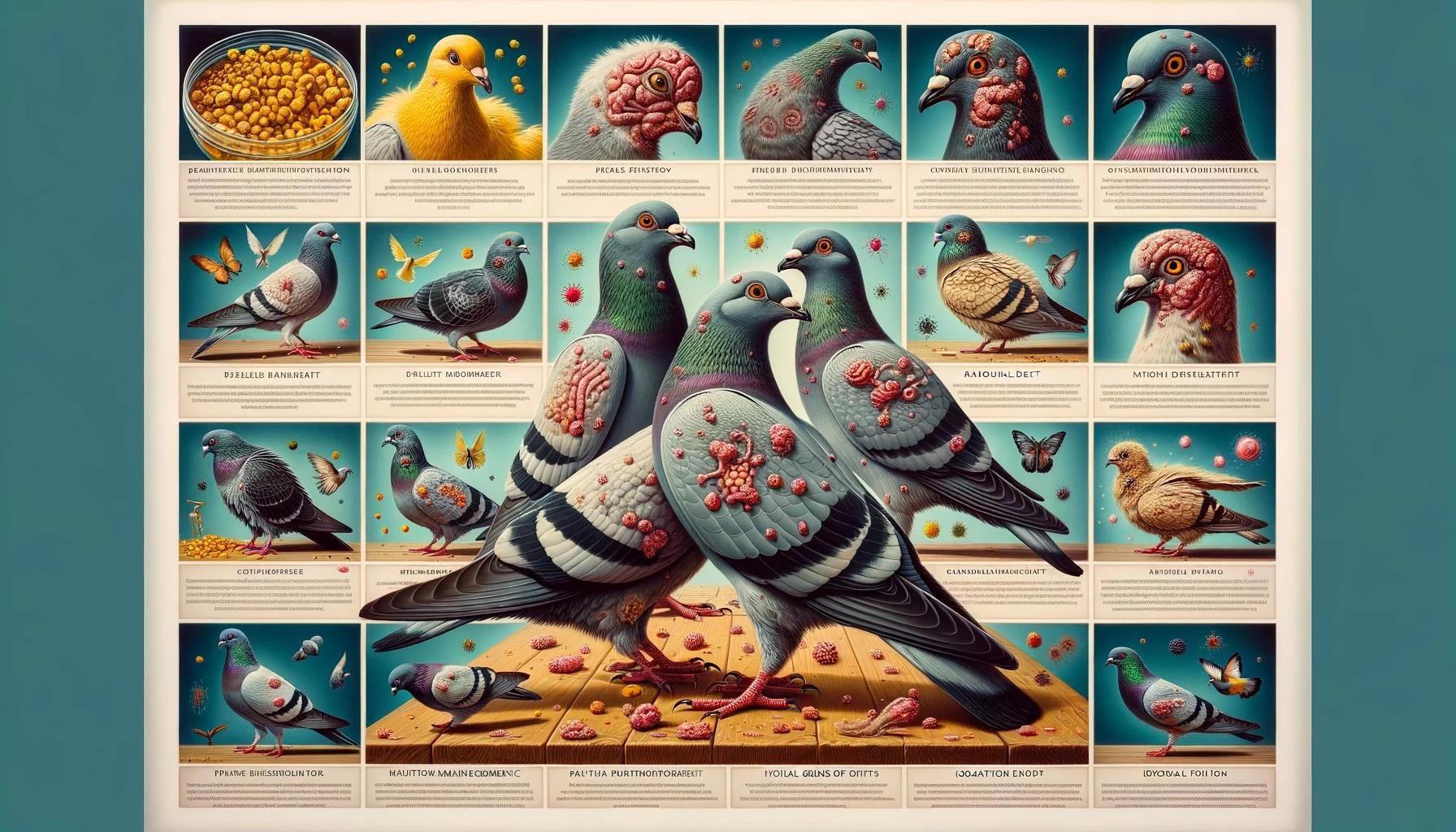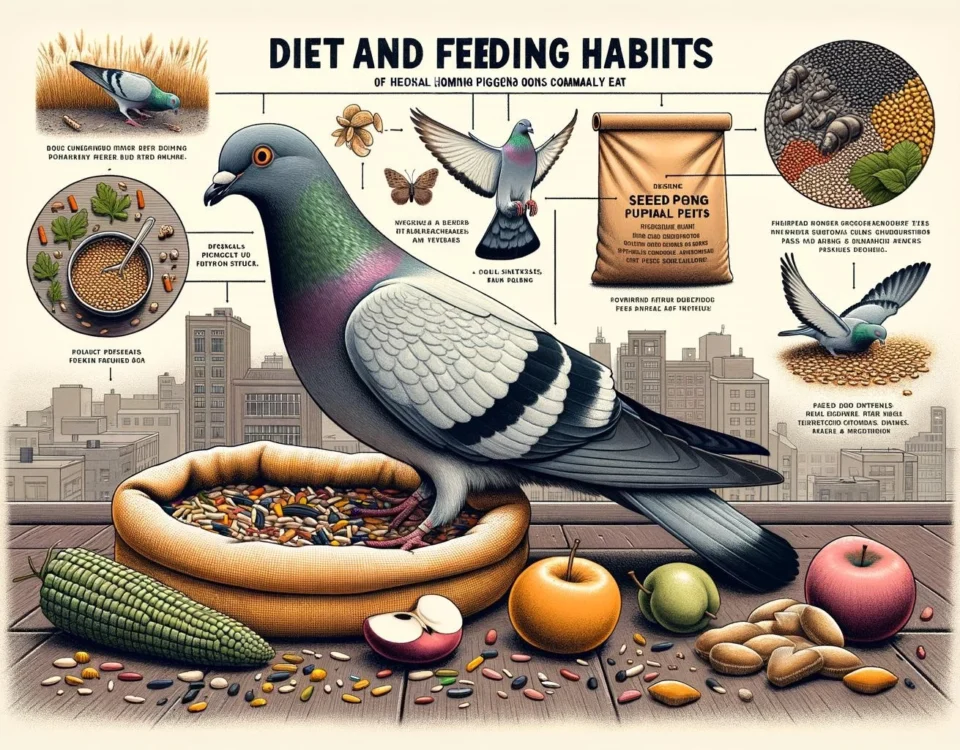Homing pigeons, also known as racing pigeons, are highly specialized birds bred for their remarkable navigational abilities. However, like any animal, they are susceptible to certain diseases that can affect their health and performance. Understanding these diseases is crucial for pigeon fanciers and breeders to ensure the well-being of their birds.
Key Takeaways
- Common diseases of homing pigeons include canker, respiratory infections, parasites, and gastrointestinal issues.
- Viral diseases that affect homing pigeons include adenovirus, poxvirus, circovirus, herpesvirus, and paramyxovirus-1.
- Bacterial diseases such as paratyphoid caused by Salmonella and fungal infections like candidiasis can also afflict homing pigeons.
- External parasites like lice, mites, and flies can cause significant discomfort and may transmit diseases to pigeons.
- Regular monitoring, good hygiene practices, and prompt veterinary care are essential in preventing and managing diseases in homing pigeons.
Canker (Trichomoniasis)
Canker, also known as Trichomoniasis, is a common disease that affects homing pigeons. It is caused by a pathogen called Trichomonas columbae. Canker can be transmitted through shared water bowls, feeding young pigeons crop milk, or close contact between infected and healthy birds. The disease primarily affects the throat and digestive tract, causing nodules, breathing difficulties, weight loss, diarrhea, lethargy, and bleeding from the mouth and cloaca. Canker can be diagnosed through microscopic examination of feces, and treatment involves medication prescribed by a veterinarian, sometimes coupled with surgical removal of nodules.
Respiratory Infections
Respiratory infections are a significant concern for homing pigeons. They are highly contagious and can severely impact a bird’s ability to breathe and fly. Stress, young age, and old age make pigeons more susceptible to respiratory infections, which can be caused by various factors, including fungi, viruses, bacteria, and mites. Symptoms may include visible discharge from the nostrils, sneezing, coughing, open-mouth breathing, fluffed feathers, loss of appetite, and overall lethargy. Prompt veterinary care, environmental cleaning, and appropriate medication are necessary to treat respiratory infections effectively.
Parasites
External parasites, such as lice, mites, and flies, can cause significant discomfort for homing pigeons and can potentially transmit diseases. These pests may bite and irritate the birds, leading to blood loss and introducing infections. Common signs of external parasite infestation include a scaly appearance on unfeathered areas, tiny holes in feather shafts, and itching. Medicated sprays are typically used to treat the affected pigeons and eliminate the parasites.
Internal parasites, such as roundworms, tapeworms, hairworms, and coccidia, can also affect the health and performance of homing pigeons. These parasites reside in the digestive tract and can cause symptoms such as diarrhea, weakness, increased susceptibility to other diseases, and poor performance. Regular microscopic examinations of droppings are recommended to detect and treat internal parasites as necessary.
Disclaimer: This information is provided for educational purposes only and does not substitute professional veterinary advice. If you suspect that your homing pigeon is sick, it is important to consult a veterinarian for accurate diagnosis and appropriate treatment.








